The new solar array, which will save the college over four million dollars over 25 years, will be dedicated will be April 17 at 1 p.m. at the Field of Dreams, followed by a tour. The event is open to the public and “is a chance to mark the significance and formally recognize the start of the solar array,” said Brian Webb, Houghton’s Sustainability Coordinator. State Senator Cathy Young, representatives from Groundwater and Environmental Services (GES), and President Shirley Mullen, will be there as well. After the dedication, there will be a guided tour of the array for those interested in seeing the solar panels up close and finding out how renewable energy works.
 Over the array’s lifetime of 25 years, it will save the college approximately $4.3 million in energy costs. Not only is this structure a representation of a cost savings for the college, but it will also allow the community to “interact with God’s creation in a responsible way,” said Webb.
Over the array’s lifetime of 25 years, it will save the college approximately $4.3 million in energy costs. Not only is this structure a representation of a cost savings for the college, but it will also allow the community to “interact with God’s creation in a responsible way,” said Webb.
According to Webb, the array will take a huge chunk of energy from a renewable source, the sun, turn it into electric energy which will then power about half of the college throughout the year. The funding, provided by GES, will allow for the maintaining and owning of the solar array for the next 25 years. Webb explained in the end, “Houghton wins out because we have lower energy costs with no cost to build the structure in the first place.”
However, the solar array has raised some concerns regarding if Houghton will actually benefit from the array. Houghton senior, Katherine Tomlinson, said when she first heard of the project, she was skeptical, “I was concerned about the habits it would possibly be destroying, specifically honey bees since they are endangered than the benefits it would be bringing to campus.” However, Webb explained Houghton was the perfect spot for the solar array; there was no natural habitat such as streams or trees the college would have needed to clear. “The area was not needed for Houghton or any critical wildlife. The only environmental impact I could see would be what happens to the panels after we are done using them” said Webb.
Solar energy, along with other renewable sources of energy, help promote a healthy global climate. “It has everything to do about how our actions impact the world,” said Webb. In addition, Tomlinson explained it was not until she learned more about climate change this past and found, “the solar array is an important step for our community [Houghton] to purify our energy use and lessen our contribution to the problem [climate change].”
Twenty-five years from now, Houghton will have some different options for the array. The array can be removed from the Field of Dreams or Houghton can buy the array from GES for a low rate. Webb’s prediction for the future of the array is if it is still producing a reliable source of energy after 25 years, the college will buy it.
On April 16, there will be a forum in Java to talk about Faith and Sustainability to tie into the dedication of the solar array. This event will be in partnership with Student Government Association and have a panel of Dean Jordan, Brian Webb, and one other student. Complimentary coffee will be provided for all who attend.

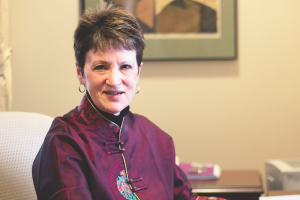
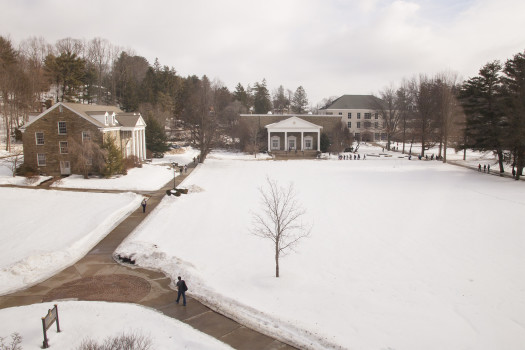
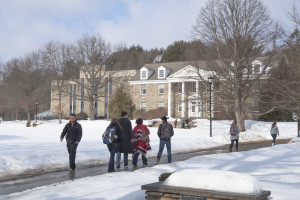
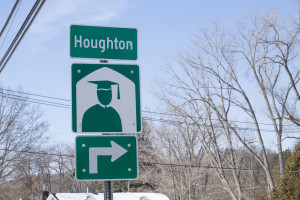
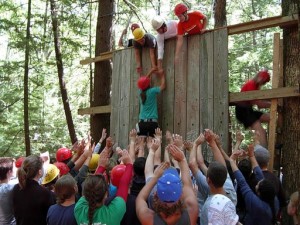 Both outdoor recreation and physical education are the only majors at Houghton that have not had developement since the major was initiated, according to Woolsey. Many students who declare this major seek to be employed in careers such as camp directors or physical education teachers. However, according to the data gathered by Woolsey and her team, the career outlook for those with degrees in outdoor recreation and physical education is slim. The job market for those interested in this industry is aligned more with sports and wellness management, an industry that includes jobs such as fitness instructor, professional team manager, nutritionist or dietician, and physical therapist. Creating the sports recreation and wellness management major will enable students to have more options when deciding on a career.
Both outdoor recreation and physical education are the only majors at Houghton that have not had developement since the major was initiated, according to Woolsey. Many students who declare this major seek to be employed in careers such as camp directors or physical education teachers. However, according to the data gathered by Woolsey and her team, the career outlook for those with degrees in outdoor recreation and physical education is slim. The job market for those interested in this industry is aligned more with sports and wellness management, an industry that includes jobs such as fitness instructor, professional team manager, nutritionist or dietician, and physical therapist. Creating the sports recreation and wellness management major will enable students to have more options when deciding on a career.